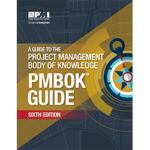
In project management, tasks never exist in a vacuum. They're interconnected threads in a larger tapestry, each relying on others to keep the whole picture intact. That’s where task dependencies come in, dictating the sequence, timing, and flow of your project’s moving parts. Get them right, and your project hums along like a well-oiled machine; miss the mark, and … [Read more...]













